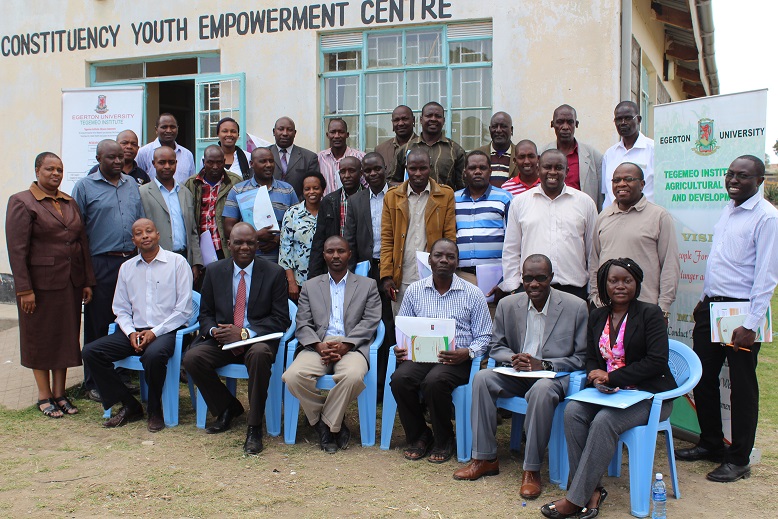Date: 16th March, 2017
Venue: Ololulung’a Sub County Headquarters, Narok County
Pastoralism is an extensive form of livestock production that constitutes the main production system found in rangelands, providing livelihoods to an estimated of 500 million people globally. Similar to other parts of the world, the country’s public policy has not always pursued policies that sustain pastoralism. This has been due to misconceptions about pastoralism, competition from other land uses, demographic changes and urbanisation. As such, pastoral communities in Kenya, similar to other parts of the world, are now facing immense pressure on their land.
Against this backdrop, Tegemeo Institute conducted a study that tracked how land tenure in pastoralist communities had changed. In addition, we were able to compare this evolution with what is happening to pastoral communities in other parts of the world with a view of learning from these experience and drawing lessons that will help pastoral communities sustain their productive systems. We have drawn lessons through interaction with experts from Sub Saharan Africa and Latin America. The findings from this work were disseminated and discussed in a recent workshop as we continue to engage in the debate for sustaining pastoralism. The workshop will brought together government bureaucrats, pastoral communities and other stakeholders working with pastoral communities to deliberate policies and strategies that will improve pastoral communities’ livelihoods and sustain their productive systems.
See more output here
//www.flickr.com/photos/126246213@N07/collections" style="outline: none; color: rgb(51, 96, 3); text-decoration: none; transition: color 0.2s ease-in-out 0s;">Photos ...




